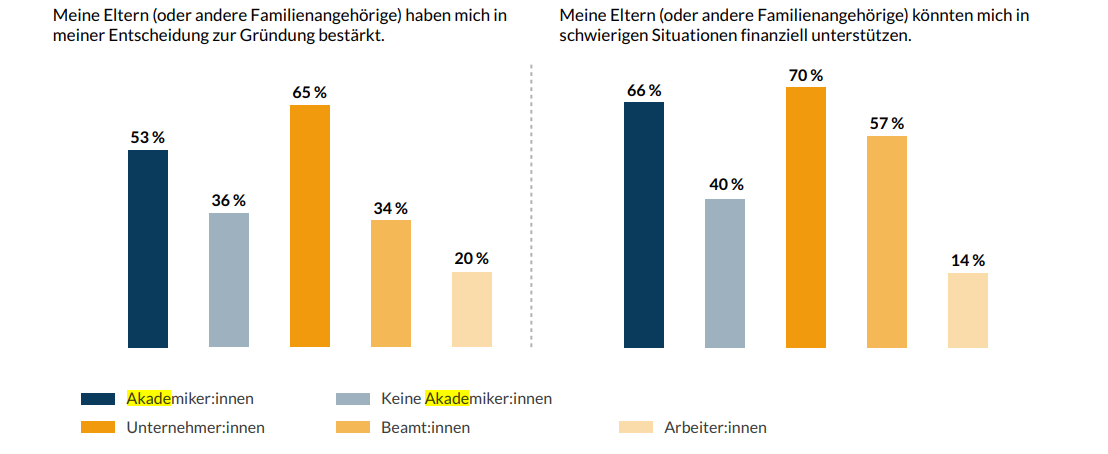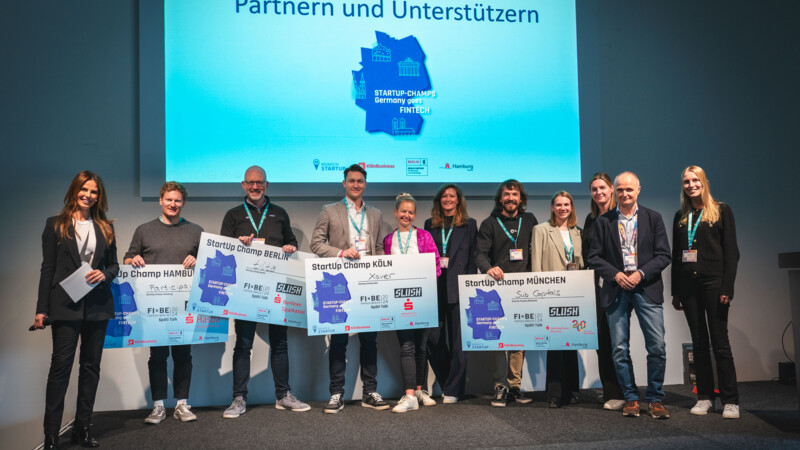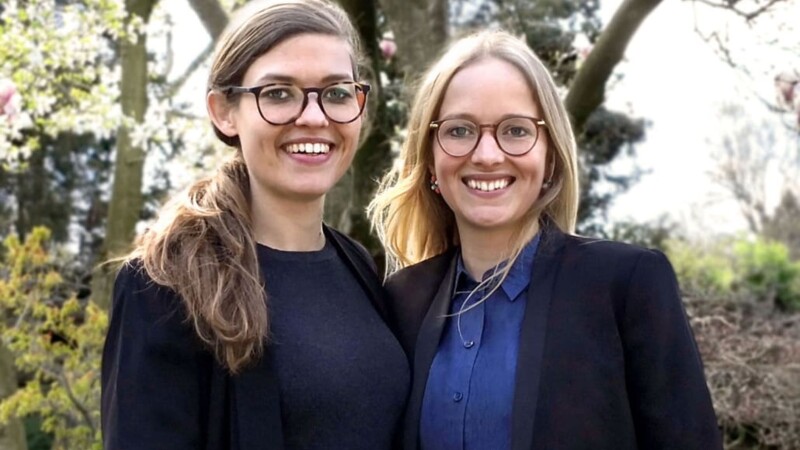Six out of ten founders surveyed come from households with at least one academically educated parent. The proportion of academics among the founders themselves comes to 85 per cent. More than a third of respondents (38 per cent) come from a household with an entrepreneurial background and some 24 per cent managed companies with employees. "Our study highlights the importance of role models, networks and personal support for founders," said Franziska Teubert, Managing Director of the Startup Association. Their parents' level of education, in particular and their own careers play a key role.
Family matters, role models and academic background play a key role in founding a start-up, according to a survey presented by Bertelsmann Stiftung and the Startup Association in May. A total of 1,800 founders were interviewe for the survey.
Family background and education crucial

Founders benefit from parental networks
However, the survey also revealed an imbalance. While entrepreneurial parents and their networks are often role models and door openers, founders from other social backgrounds lack comparable family support. Around 70 per cent of the founders surveyed with an entrepreneurial family background could rely on financial support in a difficult situation. This applied to only 57 per cent of respondents whose parents are civil servants, and only 14 per cent of children from working class families. Also, founders from academic families are more likely to be able to raise external capital (63 per cent) than founders from working class families (46 per cent).

Successful start-ups keen to expand
Nine out of ten founders surveyed would like to set up up another start-up, despite having started out differently. The social background does not have a negative impact on the mindset and willingness to think big. "Successful start-ups are a lever for creating more equal opportunities in the economy," said Julia Scheerer, Senior Project Manager at the Bertelsmann Stiftung.
fw/mm/pb
Sources and further information
More
Similar articles

New funding schemes for start-ups and SMEs in Hamburg

Hamburg's Participayed wins Startup-Champs 2024

